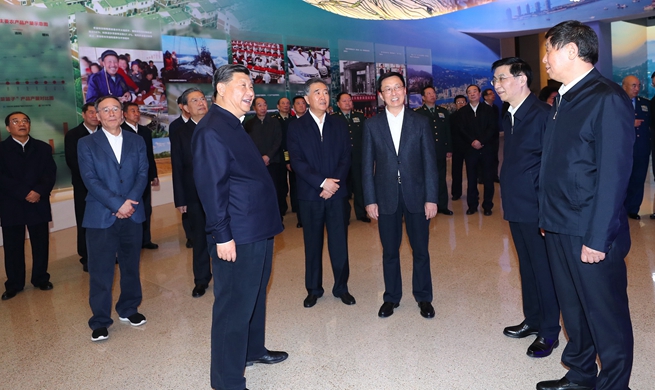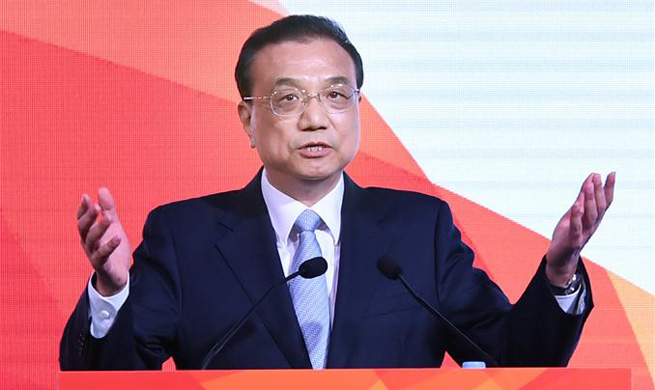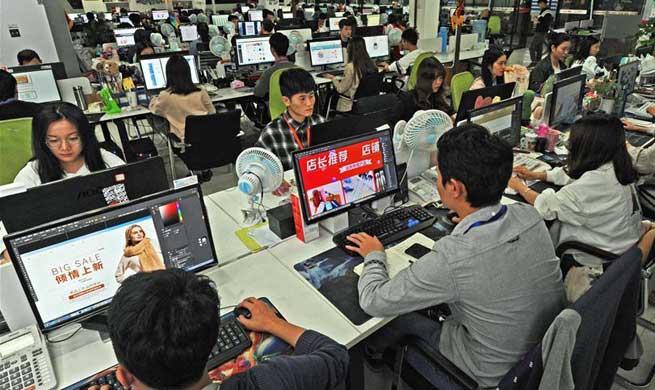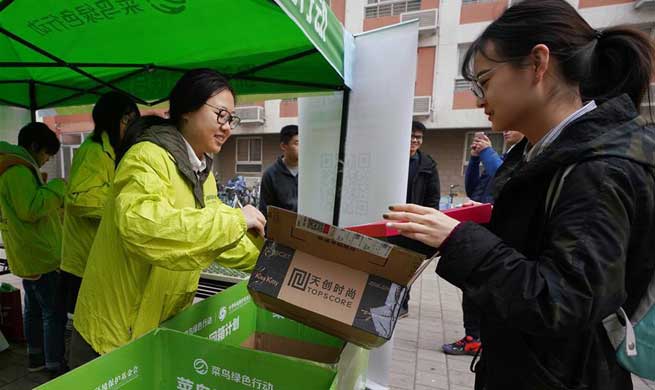DALLAS, Nov. 13 (Xinhua) -- Chinese supercomputer manufacturer Sugon demonstrated its new high performance computer called Silicon Cube at an on-going international supercomputer conference in Dallas.
Silicon Cube adopted the phase-change liquid cooling technology with the high energy efficiency, reducing the power usage effectiveness to 1.04.
Li Bin, general manager of High Performance Computing (HPC) Division at Sugon, told Xinhua at the conference named SC18 that only 4 watts power would be used to cool down equipment of 100 watts while 50 to 100 watts power might be used for an ordinary system.
As the supercomputers are eying a billion billion calculations per second benchmark, one challenge lies in its large power consumption and limits on system scale, according to Li.
"It's no longer possible to improve the performance of supercomputers by simply enlarging system scale or increasing power dissipation," said Li. "Higher performance has to depend more on lower power usage effectiveness."
Sugon scientists developed the immersion phase change liquid cooling technology. They soaked the mainboards with CPUs and GPUs into a specific fluids that may bubble up to air in a constant temperature, bringing away more heat than air-cooled technology while not causing short-outs of the circuits.
Also, the new computer applied the heterogeneous computing architecture, improving its supports for artificial intelligence applications, according to Sugon.
Ye Jian, Sugon's Chief Operating Officer, said that the popularity of artificial intelligence, largely represented by machine learning and deep learning, had boosted the explosive growth of computing resources demands, offering more potential for Silicon Cube's application in many industries.
Sugon is one of China's earliest and largest HPC vendors. It produced 57 supercomputers in the latest Top 500 supercomputer rankings.
















